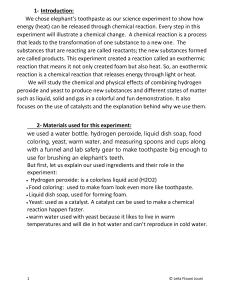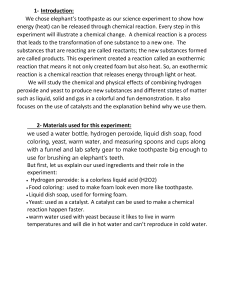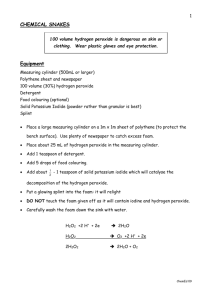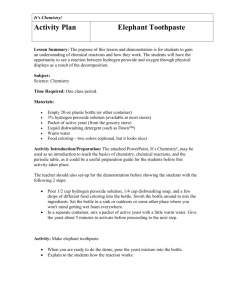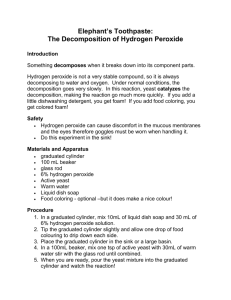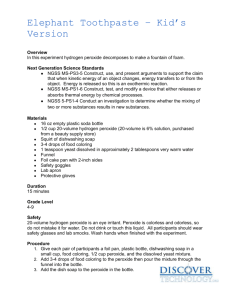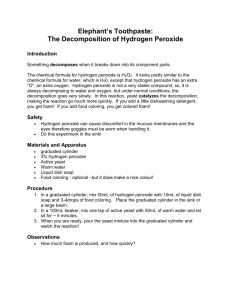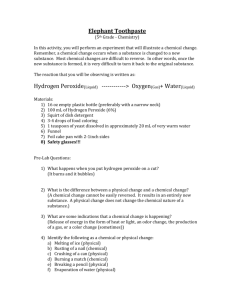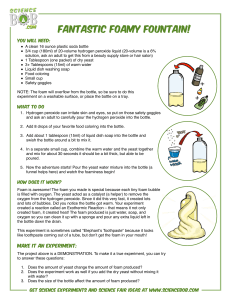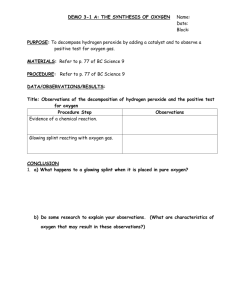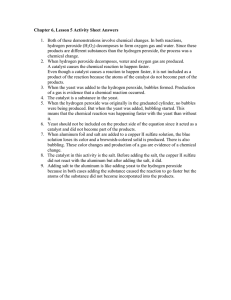Elephant`s Toothpaste
advertisement
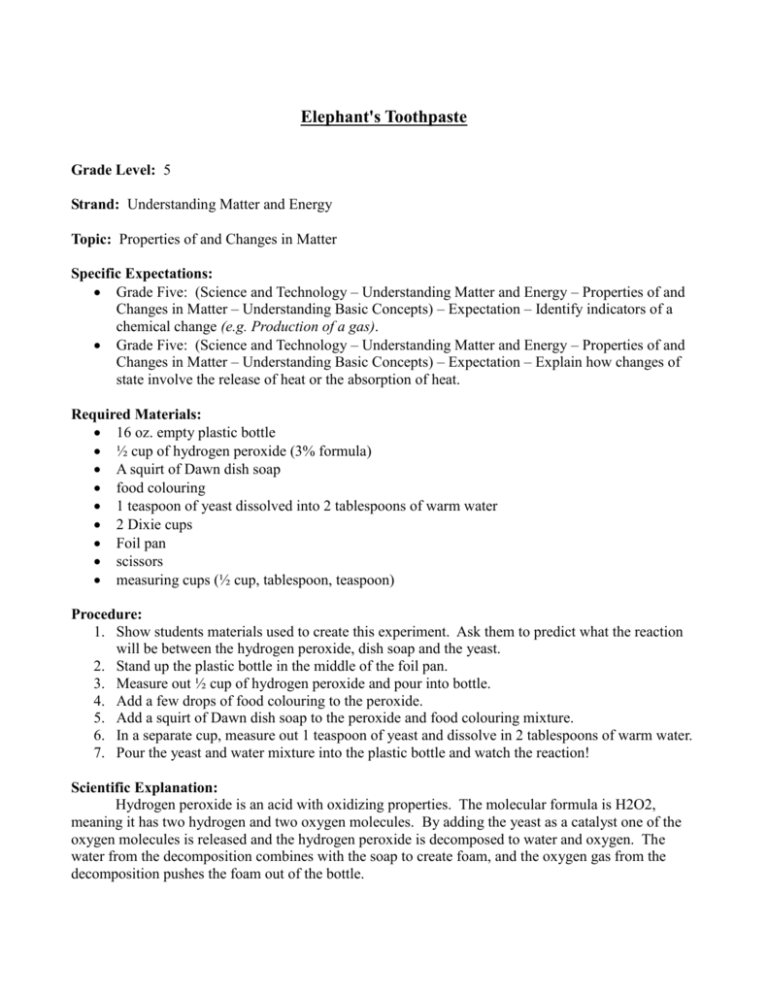
Elephant's Toothpaste Grade Level: 5 Strand: Understanding Matter and Energy Topic: Properties of and Changes in Matter Specific Expectations: Grade Five: (Science and Technology – Understanding Matter and Energy – Properties of and Changes in Matter – Understanding Basic Concepts) – Expectation – Identify indicators of a chemical change (e.g. Production of a gas). Grade Five: (Science and Technology – Understanding Matter and Energy – Properties of and Changes in Matter – Understanding Basic Concepts) – Expectation – Explain how changes of state involve the release of heat or the absorption of heat. Required Materials: 16 oz. empty plastic bottle ½ cup of hydrogen peroxide (3% formula) A squirt of Dawn dish soap food colouring 1 teaspoon of yeast dissolved into 2 tablespoons of warm water 2 Dixie cups Foil pan scissors measuring cups (½ cup, tablespoon, teaspoon) Procedure: 1. Show students materials used to create this experiment. Ask them to predict what the reaction will be between the hydrogen peroxide, dish soap and the yeast. 2. Stand up the plastic bottle in the middle of the foil pan. 3. Measure out ½ cup of hydrogen peroxide and pour into bottle. 4. Add a few drops of food colouring to the peroxide. 5. Add a squirt of Dawn dish soap to the peroxide and food colouring mixture. 6. In a separate cup, measure out 1 teaspoon of yeast and dissolve in 2 tablespoons of warm water. 7. Pour the yeast and water mixture into the plastic bottle and watch the reaction! Scientific Explanation: Hydrogen peroxide is an acid with oxidizing properties. The molecular formula is H2O2, meaning it has two hydrogen and two oxygen molecules. By adding the yeast as a catalyst one of the oxygen molecules is released and the hydrogen peroxide is decomposed to water and oxygen. The water from the decomposition combines with the soap to create foam, and the oxygen gas from the decomposition pushes the foam out of the bottle. H2O2 (add yeast) H2O O1 (plus soap) foam gas wants to be released This chemical reaction is exothermic; there is more energy released than used and this extra energy takes the form of heat. Consequently, the foam that is pushed out of the bottle is warm to the touch. Glossary: Catalyst- a substance that initiates or accelerates a chemical reaction without itself being affected (for example, the yeast remained the same but was essential to the reaction). References: http://www.stevespanglerscience.com/experiment/elephants-toothpaste http://www.regent.edu/acad/schedu/pdfs/mcms/elephant_toothpaste.pdf http://www.using-hydrogen-peroxide.com/elephant-toothpaste.html Opportunities/Other Considerations: Always remember to use safety goggles when working with chemicals! Try using a higher concentration of hydrogen peroxide- 6% or higher creates a bigger reaction. Try doubling the ingredients- foam is less thick but more is produced. Try experimenting with different amounts of the required materials- see what happens!

